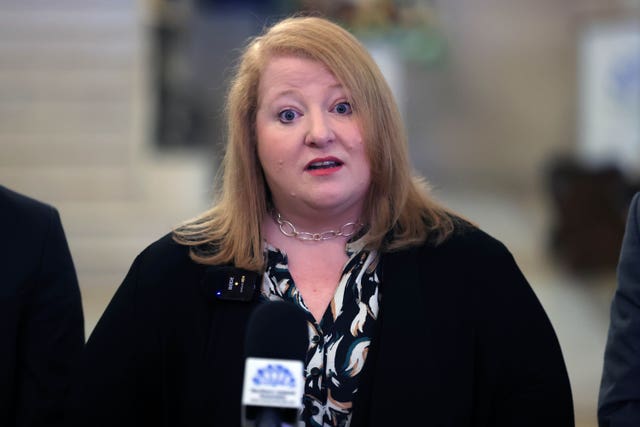The Prime Minister’s Rwanda Act has had a “chilling effect” on victims of human trafficking coming forward to the authorities, Northern Ireland’s justice minister has said.
The Safety of Rwanda (Asylum and Immigration) Bill became law on Thursday paving the way for deportation flights to get off the ground.
It is set to see asylum seekers being transported from the UK to the east African nation.
Stormont Justice Minister Naomi Long expressed grave concerns about the plans during an appearance before the Assembly’s scrutiny committee for her department on Thursday.
She said she recently met with the independent commissioner on human trafficking, and said the Act has had a “chilling effect”.

“Obviously it applies in Northern Ireland but it is a reserved matter, my department has no involvement at all with the issue of migration,” she said.
“The human slavery commissioner was very clear – people who have been trafficked are afraid to come forward because they fear deportation to Rwanda.
“There are two things that are happening that she was able to bring to my attention – which I’m aware of from conversations that we’ve been having with people in the sector here – first is that the victims themselves are afraid to disclose they’ve been trafficked, or to make any complaint.
“They want to stay under the radar because they’re afraid if they rise above it that they will then be immediately placed as illegal immigrants.
“And the second thing is that it is creating an ethical dilemma for first responders. So if you work in a hospital, if you’re a nurse, if you’re a police officer going to a state of a crime.
“If you’re an ambulance worker, or a fire service person, you turn up at a houses overcrowded, and you suspect modern slavery is taking place.
“The ethical dilemma is leaving those people be knowing that that could be being exploited or do you raise a red flag over that property and run the risk of them being deported.
“That is a genuine concern.
“We are now treating people who have been trafficked, who are victims, as criminals, and potentially in doing that, we are making the actual criminals who traffic them harder to reach.
“So it is a genuine concern and one that we’re very alert to.”
You may also like: Campaigners call for asylum laws to be repealed to avoid ‘catastrophe’

